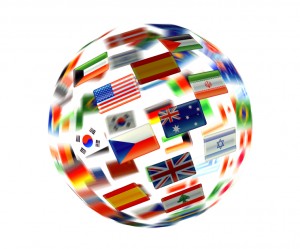 Tikal Draws Attention on Festivities on New Era in Guatemala
Tikal Draws Attention on Festivities on New Era in Guatemala
Tikal, the largest Maya city discovered so far, is attracting the attention of thousands of Guatemalans and foreigners who will arrive there by plane or car to attend the ceremonies to welcome the new era, according to the Maya calendar.
The event, which takes place every 5,125 years, according to the Maya view of the world, will be followed by millions of people all over the world thanks to the communication technologies.
However, many decided to buy their tickets to be on that date in Guatemala, the heart of the Maya world, as promoted by the Guatemalan Tourism Institute (INGUAT) in 2012.
The INGUAT estimates that 150,000-200,000 foreign tourists will arrive in this Central American country to participate in the festivities, to be held in 13 archeological sites.
Some 3,000 travelers are expected to arrive in Tikal alone, some 500 kilometers north of this capital, according to the INGUAT.
According to history, the monumental architecture of that place dates from the 4th century B.C. and reached its maximum development during the Classic Period, between the years 200 and 900 A.C.
During that period, the city of Tikal, which means “in the well of water” in the Yucatan Maya language, and “place of voices” or “place of languages” in the Itza Maya language, dominated a vast part of the Maya region in the political, economic and military fields.
The United Nations Educational, Scientific and Cultural Organization (UNESCO) declared Tikal Humankind’s Heritage Site in 1979.
Bolivian Summer Solstice Begins with Purity Ritual
The activities of the summer solstice in Bolivia began with a ritual for spiritual purity in Isla del Sol and President Evo Morales is expected to light the “Sacred Fire.”
In this island, at Santa Barbara hill, they will hold a ritual for spiritual purity and sacrifice to the Pachamama (Mother Earth), headed by several Bolivian ministers and attended by around 4,000 people
The participants, who are coming from the five continents, began to climb in the early morning Santa Barbara hill, 5,000 meters over sea level and more than 6,000 meters over Titikaka Lake.
The delegations of representative from friendly countries have already begun to arrive in the island where they are also expecting the arrival of Ecuadorian President Rafael Correa.
Bolivian and Nicaraguan Vice Presidents Alvaro Garcia Liniera and Moises Omar Holleslevens, respectively, already arrived in the island to participate in the activities.
Garcia Liniera highlighted that this is an important ritual that marks the beginning of a new era of friendship, love and equality, to leave behind hatred and resentment.
After these activities, the participants will return to Qhona bay to welcome President Evo Morales, who will arrive on the reed raft “Tunupa” to hand over the “Sacred Fire” and head the Summer Solstice celebration.
All the participants are expecting the president’s words to receive the Pachaj Kuti (New Time).
This ritual is expected by thousands of people to celebrate the end of “no time” and welcome a new cycle of life in harmony with Mother Earth.
The Mayan culture established the Pacha Ajayu (energy), which enlightens humanity and its irradiation strength is in a certain region of the world for a period of 3,600 years.
These forces were in Tibet, Asia, and went to Titikaka Lake, shared by Bolivia and Peru.
Russia Slams US Opposition to UN ‘Anti-Nazi’ Resolution
The Russian Foreign Ministry on Friday criticized the United States’ reluctance to back the Russian-proposed UN resolution against the glorification of Nazism.
The UN General Assembly adopted the resolution on Thursday. A total of 130 countries approved the document, while the US, Canada, and Palau voted against it and another 54 countries, including the Baltic States, abstained.
“We are highly perplexed and regret the fact that the US, Canada and Palau voted against this document, while the delegations of EU member states abstained during the vote on the resolution, which was backed by the overwhelming majority of UN member states,” the ministry said.
The resolution condemns the construction of memorials in honor of former Nazis and Waffen-SS soldiers and the holding of public pro-Nazi demonstrations. It also calls for action to be taken to prevent neo-Nazi ideas being circulated on the Internet.
“We hope that the adoption of the resolution will send a clear signal to those countries where there is a long overdue need to take most decisive measures to counter increased attempts at glorifying Nazism, including those who served with the Waffen-SS,” the statement said.
Via PL
